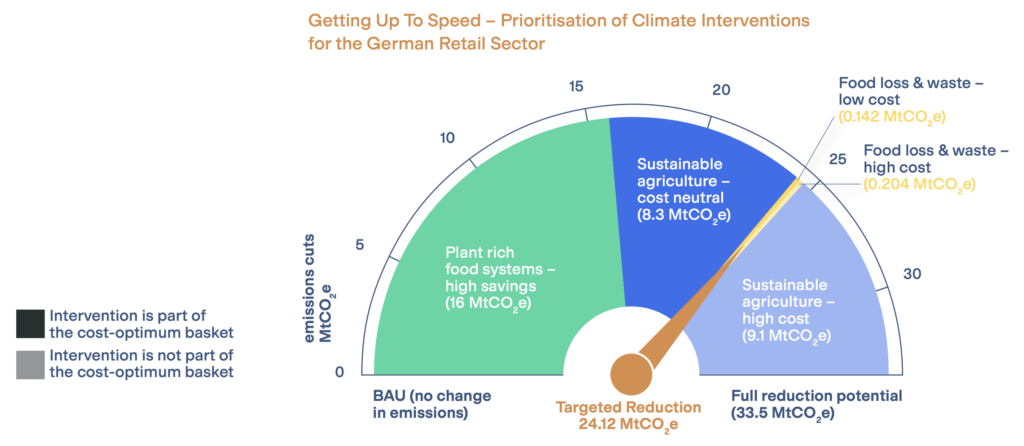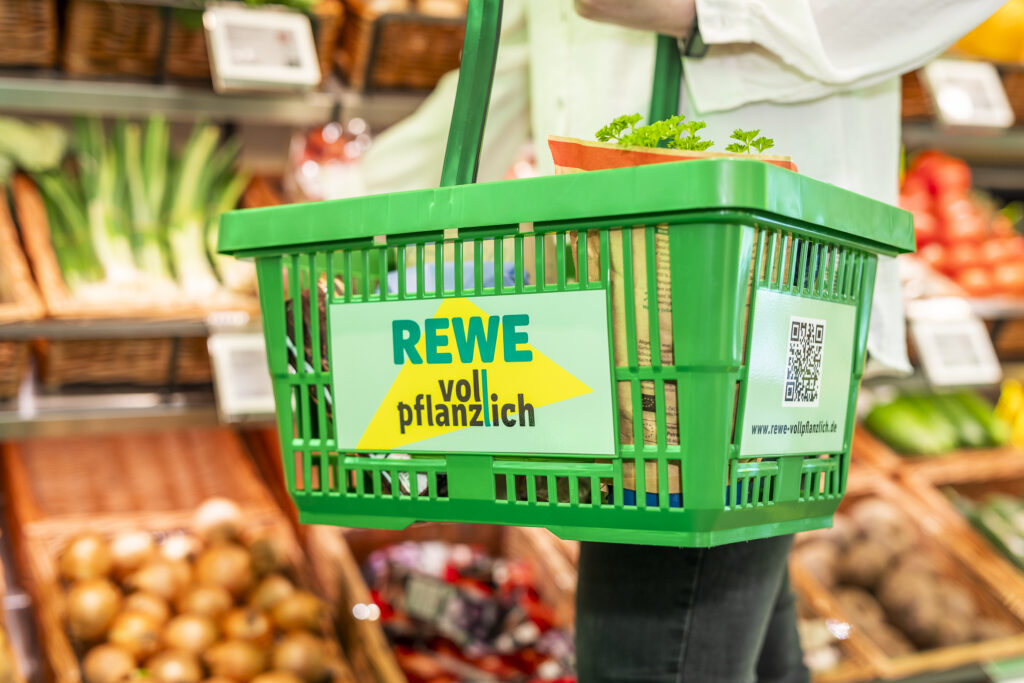5 Mins Read
German retailer Rewe Group has developed a protein strategy to increase its share of plant-based sales and has called for a shift in policies to encourage investment in the sector.
While investors and Big Food are turning their backs on plant-based food, Europe’s retailers are leading the charge towards the protein transition.
Rewe Group, whose stores include Rewe, Penny and Billa, has become the latest supermarket company to announce a protein strategy in favour of plants.
While details of the plan are still under wraps, the group’s public affairs director, Emilie Bourgoin wrote on social media: “As one of the retail companies in Europe with an ambitious climate goal, we have committed ourselves to a holistic protein strategy.”
She added: “One thing is certain: our food production must become more climate- and resource-friendly. At Rewe Group, we align ourselves with the Planetary Health Diet, a scientifically backed nutrition plan. And we have developed an ambitious protein strategy.”
Bourgoin stressed the need for a change in Germany’s “political framework” to support greater investment in alternative proteins, the same week the country elected a new conservative government, with the far-right making major gains.
European retailers go nuts for plants

Climate activists have been pushing for Europe’s retailers to more fully embrace plant proteins. In Germany, the continent’s largest market for plant-based food, the national dietary guidelines advocate a diet where 75% of food intake comes from plants and meat consumption is halved.
Research by climate advocacy group Madre Brava and consultancy firm Quantis revealed that the best way for German retailers to meet their climate targets without breaking the bank is to replace 30% of their meat and dairy offerings with plant-based alternatives.
The study focused on the Big Four supermarket groups in Germany: Edeka, Rewe, Lidl, and Aldi. Discount grocer Lidl has been spearheading the shift, having announced a ‘protein split’ target in several markets, before committing to increase the share of plant-based sales by 20% in all 31 countries it operates in.
Dutch retailer Ahold Delhaize followed up with its own goal to achieve 50% of its protein sales from plant-based foods across Europe by 2030. Now, Rewe Group – which has over 3,800 stores in Germany – has indicated that it’s joining that list.
To help more retailers make the shift, the World Wildlife Fund (WWF) recently released a methodology to measure plant-based sales and increase their impact on the bottom line, suggesting that 74% of supermarket sales should come from plants.
Rewe Group extends vegan leadership

Rewe Group was the first German supermarket to pledge a reduction in its Scope 3 forest, land use and agriculture (FLAG) emissions, and aims to reach net zero by 2050. It has also committed to cutting food waste in half by the end of the decade.
When it comes to vegan products, it’s already a leader. In its 2023 sustainability report, it acknowledged that plant-based private-label offerings “save emissions during production” when compared to “similar animal products”.
Between its own labels and third-party brands, Rewe Group offers over 1,900 vegan products in Germany and was recognised as the ‘vegan-friendliest store’ by the Albert Schweitzer Foundation. It has opened the country’s first fully plant-based grocery store in Berlin, which stocks over 2,700 products and is serving as a testbed for future vegan stores.
“This is a hugely significant move from Rewe. As Germany’s second-biggest food retailer with branches across Europe, the company has the potential to help shape food systems,” Florian Wall, Madre Brava’s senior associate for Germany, said of the new plant protein strategy.
“We can see real competition building here, as companies vie to offer healthier food to their customers while reducing their climate emissions. With Rewe and Lidl both pushing on this, it is clear rebalancing protein offerings is not limited to a niche market. With their actions, it is becoming mainstream. We’re eager to see how the likes of Aldi and Edeka react to this news.”
Policymakers need to step up

Rewe Group’s investment into animal-free food comes at a time when venture capitalists are turning their back on it – plant-based startups received 64% less funding in 2024 than the year before. Meanwhile, giants like Unilever and Nestlé are looking to sell off their plant protein businesses and withdrawing meat alternatives from shelves.
It’s why Bourgoin is calling for a policy transformation for alternative proteins. She believes the WWF’s methodology should be established as an industry standard – Rewe Group will evaluate its own product range and set clear targets based on those results.
In addition, she advocated for a standardised labelling strategy to guide consumers (think the V-Label), and support for new product and tech innovations to strengthen the food tech ecosystem.
“Our goal is a conscious and resilient food system, with strong local agriculture at its core. We will support bold businesses that embrace diversification by increasing the use of regionally and domestically sourced ingredients for our plant-based private-label products,” Bourgoin said.
This requires support from the German Food and Agriculture Ministry’s protein strategy, which can help open up new sales channels. “Policymakers should create the right conditions to encourage private investment in alternative proteins,” she stressed. “This includes providing additional research funding, supporting startups, simplifying and accelerating approval processes for novel foods, and establishing clear, science-based regulations with minimal bureaucracy.”
Bourgoin said the playing field for plant-based and other innovative proteins should be levelled to give consumers “genuine freedom of choice”. For example, milk alternatives should have the same reduced VAT rates as dairy – currently, the former carry a 19% levy, compared to just 7% for the latter.
“A comprehensive food transition is only possible if all stakeholders – industry, retailers and policymakers – work together,” added Bourgoin. “Sustainable and diversified protein production and consumption in the EU require more collaboration, not polarisation.”



